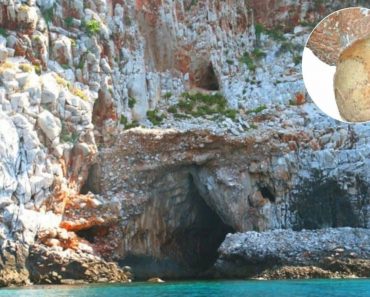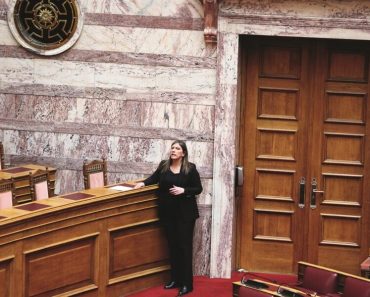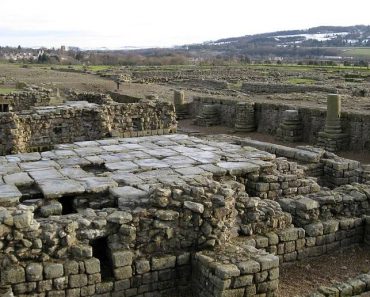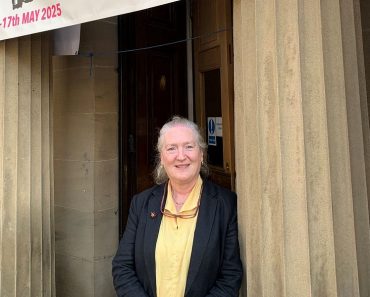Workers in Thessaloniki uncovered a mass grave dating back to Greece’s civil war during construction work at a local park. The discovery began when a crew excavating soil in the Park of National Resistance found a fragile white skull, according to the Associated Press. By March, 33 sets of bones were unearthed in a tight cluster of unmarked burial pits near the Byzantine fortress Yedi Kule.
Authorities in Neapolis-Sykies, a suburb of Thessaloniki, pressed on with the excavation, stating the find has “great historical and national significance.” The Greek Archaeological Service cleared the site for development because the bones found are less than 100 years old.
Mayor Simos Daniilidis ordered an expansion of the dig to other parts of the park in the coming weeks. “Descendants have been coming to the site in recent weeks, leaving flowers and asking the authorities to conduct DNA testing so they can retrieve the remains of their grandfather, great-grandfather or uncle,” said Daniilidis, according to CBS News. City officials are taking steps to conduct DNA testing on the remains and are inviting families of the missing to provide their genetic material.
“We found many bullets in the heads, the skulls,” said Haris Charismiadis, the supervising engineer, standing on earth overturned by four months of digging, as reported by the Associated Press. Items found with the bodies—a woman’s shoe, a handbag, a ring—offer glimpses into the lives cut short.
Among those seeking closure is Agapios Sachinidis, whose uncle was executed during the civil war. “I want Agapios close to me, at least while I’m alive,” said Sachinidis, a 78-year-old retired Communist city council member who was imprisoned during the dictatorship of the 1960s for political activity. He expressed willingness to provide a DNA sample to identify his uncle’s remains.
Yedi Kule fortress was a prison where Communist sympathizers were tortured and executed during the Greek Civil War from 1946 to 1949. Historians and the Greek Communist Party report that as many as 400 prisoners were executed there. Executions by military firing squads continued into the 1950s and were publicly announced, but the graves were unmarked and secret.
The Greek Civil War was a brutal conflict marked by death squads, child abductions, and mass persecutions. During the early Cold War battles, tens of thousands died in clashes between Western-backed government forces and leftist rebels. Records of summary trials and executions were never made public in Greece, and no political force or party has sought to excavate suspected burial sites.
For the families of the executed pro-communist Greeks, the discovery in the Park of National Resistance awakens a wartime legacy that had been suppressed for decades to avoid rekindling old hatreds. Politicians still use highly cautious language when addressing the past, and the discovery in Thessaloniki was met with a subdued public reaction.
“It shook me to the core,” said Spyros Kouzinopoulos, an author and historian from Thessaloniki who spent decades researching the executions at Yedi Kule, including the indignities endured by prisoners in their final hours. Most victims were barely adults—youth whom Kouzinopoulos called “the flowers of their generation.” Two 17-year-old schoolgirls, Efpraxia Nikolaidou and Eva Kourouzidou, were executed while wearing their uniforms, according to Kouzinopoulos.
Many prisoners used their last hours to write farewell letters to their families. After a military tribunal issued a death sentence, the chief guard would take the condemned prisoner to a solitary cell barely large enough to stand. At dawn, the chief guard and two others would retrieve the prisoner and hand them over to the firing squad. Sometimes they were led to their death on foot.
The Greek Civil War began immediately after World War II, marked by US President Harry Truman’s 1947 policy for anti-communist intervention, which provided economic and military aid to Greece. Emergency laws in Greece were gradually abolished and were completely repealed in 1989. Today, Greece’s Communist Party is part of the political mainstream, largely thanks to its role in the country’s WWII resistance. However, many Greeks still find it easier to walk past the country’s ghosts than confront them.
“We must send a message—never again,” said Daniilidis. The city stated that efforts to find other mass graves would continue “so that all the skeletons of the people who lost their lives in this way during the dark years of the Civil War and were not given the honors traditionally attributed to the dead are found.”
The article was written with the assistance of a news analysis system.







